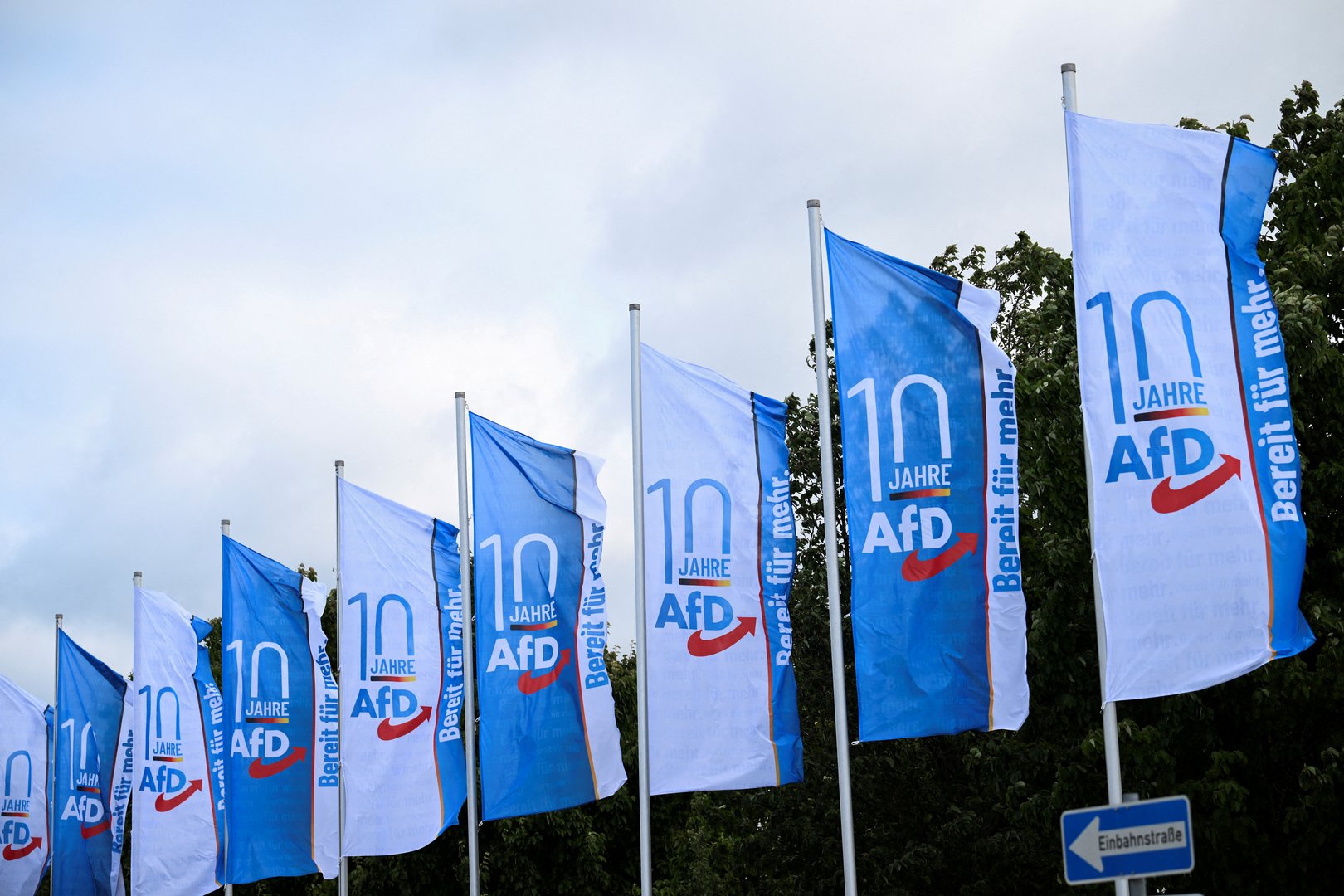The leadership of Germany’s far-right Alternative for Germany (AfD) has asked one of its lawmakers to “clarify” a report that he received money from a pro-Russian news portal, amid growing scrutiny across Europe of right-wing parties’ links to Moscow.
Petr Bystron, a member of the German Bundestag and an AfD candidate in this summer’s European Parliament elections, has strongly denied the report.
In a letter dated Wednesday, AfD leaders Alice Weidel and Tina Chrupalla said Bystron must explain his position on the matter by Thursday afternoon “in order to dispel all allegations beyond doubt and so that our party’s federal executive committee is able to react accordingly”.
“At no time did I receive any cash payments or cryptocurrencies from an employee of ‘Voice of Europe’ (or any Russian),” Bystron wrote in a letter to the AfD leadership seen by Reuters on Wednesday.
He said he was being targeted by a defamation campaign that aimed to damage opposition politicians in several European countries.
German magazine Der Spiegel and Czech newspaper Denik N asserted that Bystron had received money from the portal Voice of Europe after the Czech government last week sanctioned the operators and backers of the platform due to suspected Russian influence.
The Czech foreign ministry said the operators had sought to stir up sentiment in Europe against support for Ukraine through interviews with pro-Russian politicians. The portal also conducted interviews with the AfD’s top candidate in the European Parliament elections, Maximilian Krah.
A Spiegel journalist also said Czech authorities had incriminating audio evidence of Bystron.
“German security services are currently trying to obtain the recording from the Czech secret service,” a German security source told Reuters.
Asked about Bystron, German Defense Minister Boris Pistorius on Wednesday said that, if true, the allegations would confirm his view that the AfD was a “fifth column for Moscow”.
In an interview with the Funke Media Group published on Wednesday, Bystron said: “I did not accept any money to promote pro-Russian positions.”
He also asked the Czech secret service to present the alleged audio recording.
Bystron did not immediately respond to a Reuters request for comment.
The AfD, with 78 of 735 seats in Germany’s parliament, leads polls in several poorer, post-industrial eastern states where its anti-establishment, anti-immigrant stance resonates. It opposes Germany’s backing for Ukraine in the war with Russia.







Click here to change your cookie preferences